UNGA chastises Israel on multiple issues
The UNGA, United Nations General Assembly, has adopted a resolution against Israel on multiple issues from settlement building to the continued destruction of Palestinian homes, expulsion of Palestinian families from East al-Quds and the deprivation of Palestinians of the right to reside there.
The key question is will this actually change anything on the ground especially considering Israel's behavior in the past?
We will look at why UN resolutions have not changed illegal Israeli actions of the past and what can actually alter its actions.
The United Nations General Assembly has actually voted on a variety of issues. Could you briefly summarize them for us?
Well, first of all, the Palestinian Minister of Foreign Affairs, Dr Riyad al-Maliki, had welcomed the anonymous vote in favour of the resolutions that were adopted by the fourth Committee of the UN General Assembly.
As you have mentioned, there were several issues adopted by the UN General Assembly. It condemned Israel over (the) construction of Israeli settlements in the occupied West Bank and in al-Quds.
It also slammed the continued destruction of Palestinian homes in Area C in the between villages and the expulsion of Palestinians from their homes; illegally.
It's also slammed the ongoing and nonstop settler violence against Palestinians and their children, as well as the destruction of the agricultural lands, at the confiscation of the Palestinian lands in order to annex Israeli settlements.
So Palestinians today are hoping that these resolutions that were adopted by the United Nations General Assembly to be translated into acts on (the) ground not only continued condemnation, from this body to Israel, knowing that without sanctions being imposed on the Israeli regime, the Israeli regime would be continuing its aggressive policies and aggression against the people of Palestine.
Mona Kandil, Press TV, Ramallah
At the UNGA we have the majority of countries actually saying okay, this is something that we realised we were going to vote for. But it's not the first time that this has happened. And of course it creates some hope for the Palestinians but the general consensus is not very optimistic for this to translate into action. How do you see it?
Good evening. I actually, probably for the first time in a long time, am more pessimistic for several reasons. The first one is the United Nations vote itself, but it was great, [the] acknowledgement of the suffering and oppression of Palestinian people by the majority of world's countries. Unfortunately, the usual suspects including the United States in addition to Canada and Israel, of course, they voted against and tried actually, as usual, to stop this vote from happening.
And my view is that as long as the United States is blindly supporting Israel, with almost no change really in policy after we have the Biden administration, and some people having this false hope that it will change things on the ground. Unfortunately, it's not Israel. it seems for us Palestinians that Israel has nothing to do in terms of running a state except oppressing Palestinians with new forms everyday on the ground from killing, you know, children, like what happened last week, to what is happening in Jerusalem and several fronts like it, it's so unbelievable, like we are stretched thin, you know, whether we're talking about the al-Tawil, neighborhood or Mount Olive where actually 10 families are being threatened of demolishing their apartment building, with 70 members of different families, then different families occupying it five stories of being demolished or forcing those owners to demolish their own homes.
To the Al-Yusufiye cemetery you know, where they are actually digging out graves. They're not leaving the dead even the Palestinian dead to Al Aqsa, to Sheikh Jarrah, to wherever, it's a constant battle really.
And the biggest hit was of course, when, a little bit over two weeks ago, when they labeled six important Palestinian civil organizations as terrorist organizations with no evidence whatsoever.
And actually yesterday at the United Nations, several United Nations agencies condemned Israel for labeling those organizations as terrorist and identified this as a crackdown on democracy or civil society and stated that they would continue working with those organizations.
But of course, on the ground when Israel is controlling the life of the Palestinians, this step in criminalizing very important, crucial organizations like Al-Dameer, Al-Haq, etc. … actually has a huge impact on Palestinians, especially the role of these organizations in documenting Israeli violations of human rights.
And actually, this leads me to, very important to mention, the impact, the terrible impact, on Palestinian prisoners, especially those on hunger strike, which I would like if you don't mind mentioned them very quickly. Sure and how long they have been on hunger strike. … one of the organizations that had been criminalized played a very crucial role in documenting their plight and the plight of Palestinian prisoners all over the world.
We have Kayed Fasfouse, today he starts 119 days or hunger strike, and he hit another record number. The last record number for hunger strikers among Palestinians was 103 days by Maher al-Akhras and not only Kayed Fasfouse but also Miqdad al-Qawasmi who starts 112 days today, and actually other Palestinian prisoners on hunger strike, who just started recently to actually join the original 600 hunger strikers.
Excuse me, but the last thing they want to say that their lives are in danger especially catered for schools and that Miqdad al-Qawasmi's sentence was frozen for a month in a trick by the Israeli authorities to actually force them to either end their hunger strike or to avoid the responsibility of their death and push it on to their families.
But the Palestinian prisoners continued their hunger strike and last week they reinstated administrative detention, which means detaining those prisoners indefinitely.
Professor Ahlam Muhtaseb, CSU, San Bernardino
When the UNGA makes these resolutions and cites specifically what has happened there, logic would dictate that if you want results, you should follow it through with an action plan.
Do these types of resolutions get followed through with an action plan in order to change Israel's behavior?
Regrettably not, but I am hopeful that things are changing. I think there's much greater awareness amongst the wider general public, both in the United States and indeed, certainly in the United Kingdom, about the abuses of Israel.
I think, to be honest with you, the Zionist lobby has overplayed its hand in their efforts to try and chill free speech about their atrocities in Israel. And I think as a consequence of that, it has brought their activities to the attention of a much wider audience.
And so people now, I think, are increasingly horrified about what is happening and of course, with the advent of the new technology and smart-phones, what we're seeing in Gaza, for example, is young people who are tech savvy, who speak good English who are, I think, citizen journalists really and so they're able to capture on their phones and broadcast over the incident, the actuality of the Israeli brutality.
I mean, Israel is a terrorist state. And, frankly, countries like the United Kingdom, [the] United States should, in my opinion, have absolutely nothing to do with them.
We should be looking to actually isolate Israel and break off diplomatic relations with them until such time as they comply with international law.
But of course, the military industrial complex is very powerful, both in the UK and of course in the United States, even more so. And it is incredibly profitable selling armaments to the Israeli state.
As we also know through work of groups like Declassified UK, a new media outlet which is dedicated to exposing the activities of the deep state in the UK, and the security services, and what they've discovered is that the UK has collaborated with the Israeli state both in terms of sharing intelligence information but also in terms of the issue in relation to the testing and selling certainly of arms.
Indeed Britain is a big exporter, well second biggest arms exporter, and many of those arms do go to Israel.
But I think the establishment, the government, is certainly no friend to the Palestinian people, and it's very much out of step with, increasingly out of step with public opinion on this issue, despite the best efforts of the Zionist lobby here who weaponized antisemitism in an attempt to try and stop those voices speaking out about what's happening, but it isn't working.
And as I say people are increasingly angered about what is happening and we saw, I think it was yesterday, the Israeli ambassador subject to a very noisy demonstration at the LSE in London.
And so, you know, I'm hopeful that as a result of grassroots activity, people's revulsion about what is happening, that you know, pressure will be applied, and we will see campaigns like the BDS campaign boycott divestment, and sanctions campaign gaining strength and I think we have to draw some comfort from that and encourage that sort of activity in order to bring pressure on the policymakers to make the right decision.
Chris Williamson, Former British MP
Israel, in which just recently Israel's UN envoy tore up the Human Rights Council Report of the General Assembly to investigate the East Gaza conflict. The media says great, media attention is great, UN resolutions are great.
Staunch US support for Israel
Do you think that if Washington had not been so supportive of Israel the door would be open to alterations in the way Israel deals with Palestinians?
Unfortunately, I would say yes, the US plays a very crucial role actually in maintaining the colonization and oppression of the Palestinian people. And I agree with your guest speaker that yes, we do have a lot of resistance, and we will never end the resistance, we will resist in all forms available to us as Palestinians and supporters of Palestinians.
And it is true if you look at the latest opinion polls in the United States, more and more people actually know what is happening and more and more people have more empathy to the Palestinian plight.
More and more people understand the context of the conflict in a more accurate, factually more accurate manner, than what is presented to them on mainstream US media.
And even among Jewish Americans who had been the backbone of the Israeli lobby in the US which, of course, plays a very crucial role in maintaining US policy.
So we have actually a great, I would say great shift, although it might sound not as much among especially young Jewish Americans and among young Americans in general, and even with mainstream media, they are forced, because of social media, to somehow change their presentation of information a bit, they now diversify their sources a little bit more.
They include some Palestinian voices, especially, you know, the latest round with the Sheikh Jarrah, and Quds in Gaza. But unfortunately, what makes me feel still not as optimistic as they should be probably is the fact that in terms of policy, we see very little change.
You know, the US congress passed only, now about less than a month ago, a new resolution to give Israel blindly $1 billion in military aid that goes to support the dome, over Israel and to fortify their defenses, etc. And so for me, I would love to believe that the actions we are taking as resistance, you know, in terms of BDS, or other forms of resistance. Palestinians on the ground, are actually making a difference, but the difference in terms of like, doesn't materialize really in US policy, unfortunately.
We have new voices in Congress that speak up against Israel and vote differently, which is a welcome change, of course, well, unfortunately, we [the USA] gave them, and we just gave them $1 billion that we could have used in the United States.
My students, I have so many students at the University, graduate students, who are food insecure, who are hungry or homeless. Can we just use this money actually, to support American citizens instead, American programs? [sic] and this is in addition to the three point seven billion dollars annually. So that's how I look at things and I wish I could bring more optimism to this conversation.
Professor Ahlam Muhtaseb, CSU, San Bernardino
Israeli violations occur on a daily basis
We can talk about all the different violations which continue practically on a daily basis. Regarding this recent $1 billion that the US is going to provide for Israel is on top of the $3.7 billion that the US gives Israel as military aid, what if the money was focused on achieving that which has failed to come to pass for the past few decades, peace between Israel and Palestine?
And why it is that this administration is not really approaching it? It's rarely touched upon. Of course, the US President Joe Biden has his hands full. However, this is a pretty important issue that obviously needs to be dealt with decisively and swiftly.
Why do you think the US has not done more?
Well, I mean, I think politics is broken on both sides of the Atlantic, both in the United Kingdom and the United States, and the mainstream political parties do not represent the interests of the ordinary people on both sides of the of the pond, as it were.
And as far as the Biden administration is concerned, it seems to me they're in the pockets of the military industrial complex and certainly part of the Israel lobby, but there's lots of money to be made from selling arms, as I've already said.
And I think that is the problem and I don't think we can put our faith in the in the existing politicians. And what we need to do is build the grassroots movement. As I understand it, in the United States, there is now a third party being established and support that is growing quite substantially.
I think, you know, when that starts to make some inroads, which I think it has some potential for because again, I understand from polling which has taken place in the United States, there is substantial support, well over 50% support, for a third party to emerge; whether people then go on and vote for it, of course, is another question.
But turnouts in elections in the United States are not very high. I mean, I think in the order of 50 or so percent, so there's a lot of people who do not participate in elections and I think if a third party can break through, and there are similar moves happening in the United Kingdom as well, and if a third party can start to break through, there is a chance that one they might make substantial progress and you know, maybe replace the Democrats but I think perhaps what was more likely to happen is that they will put additional pressure and that will, I think, concentrate the mind because at the moment all the pressure is coming from the Israel law, and they aren't in front of the powerful lobby. Let's be clear about that.
And that's why I think both the Democrats and the Republicans dance to their tune. And so that's why it's important to put a lot of efforts into building the grassroots resistance because that can then bring pressure to bear on these politicians that if they are fearful about potentially losing their seats or losing their careers, that will certainly concentrate their mind.
So I think we need a counterweight to the power of the Israel lobby in the UK and the United States. So once that starts to kind of even up the playing field a little bit, then I think we will start to see some big policy changes taking place.
Chris Williamson, Former British MP
It has been said that Israel does not want this conflict to end, Israel actually gains from this conflict from the military aid that the US provides. And for it to continue doing what it's doing in the occupied territories.
On the map Palestinian land just keeps shrinking and shrinking and shrinking, Is that because Israel gains more with this conflict ongoing than for it to actually reach a conclusion?
Yes, first I have I would like to thank Mr. Williamson for bringing in the military industrial complex into this conversation because it's a very crucial issue and actually relates to what you just said, which is this either actually of the United States or Israel to this either one of them want this conflict to be resolved?
And the answer is no. Because of that, because of the huge amount of money they make of this conflict, in terms of or in the case of Israel.
There is a very good book that Jeff Heller, who is actually an American Israeli author, wrote a few years ago I think, in 2015, if I'm not mistaken, I can't remember its name.
But in that book, he argued the case that Israel uses the West Bank and Gaza especially Gaza, of course, as, as a lab for testing their military technologies and their military technologies don't only have to be missiles and shells, and it has a wide range actually, of technologies, including spyware.
Professor Ahlam Muhtaseb, CSU, San Bernardino
Spain jurists demand ties with Israel ties be cut
VIDEO | Press TV's news headlines
VIDEO | Iran honors top Science Olympiad medalists
VIDEO | Austrians arrested at Gaza protest in Vienna
10 killed in bus crash in western Iran
VIDEO | One-man-band journalism with Civili
5 Israeli forces killed as Palestinian fighters face up to regime’s war machine
VIDEO | An insider's view of the country: Persian Tahini, Royan in Mazandaran


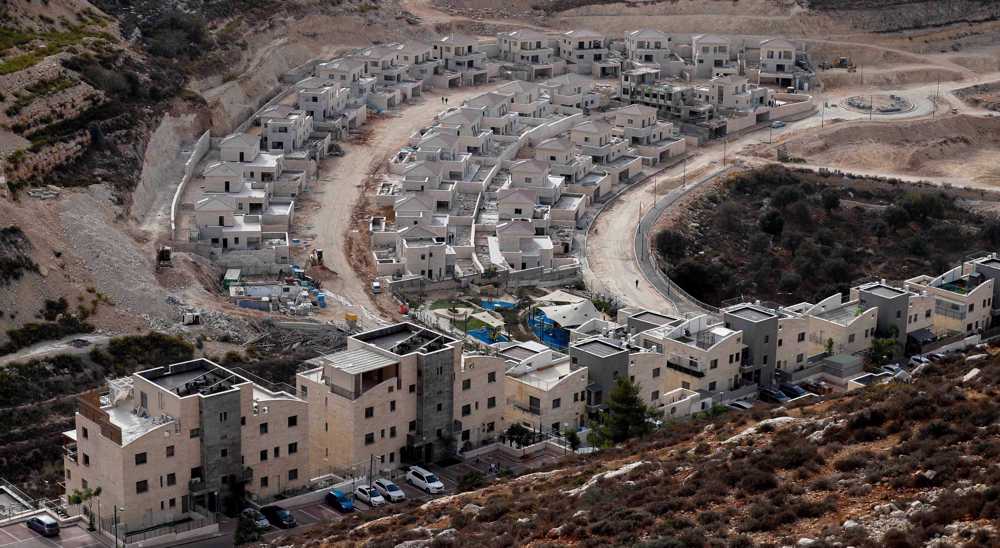


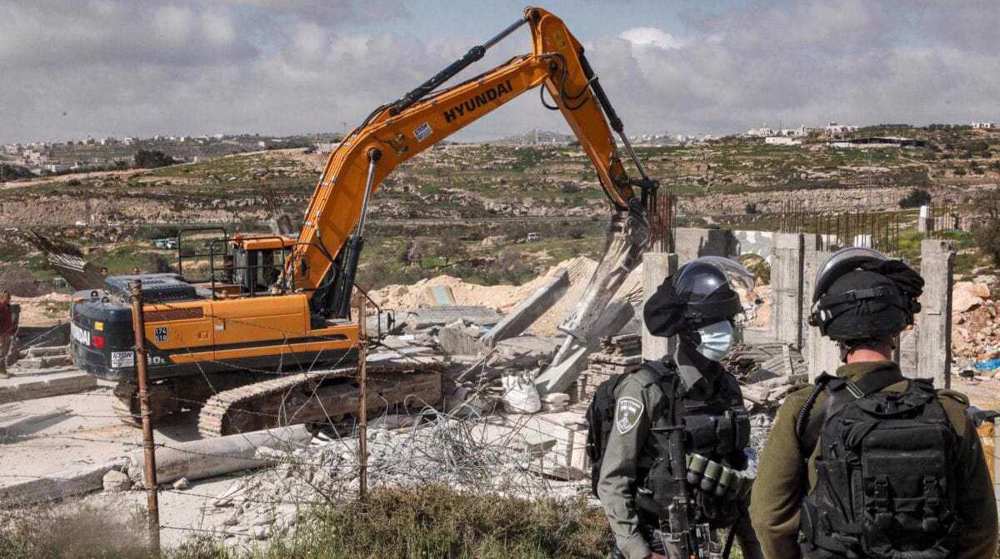
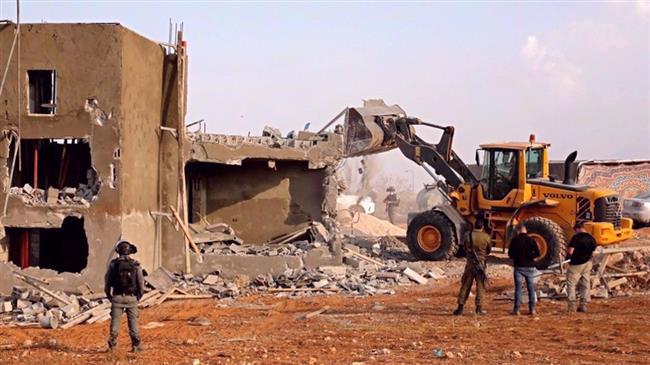
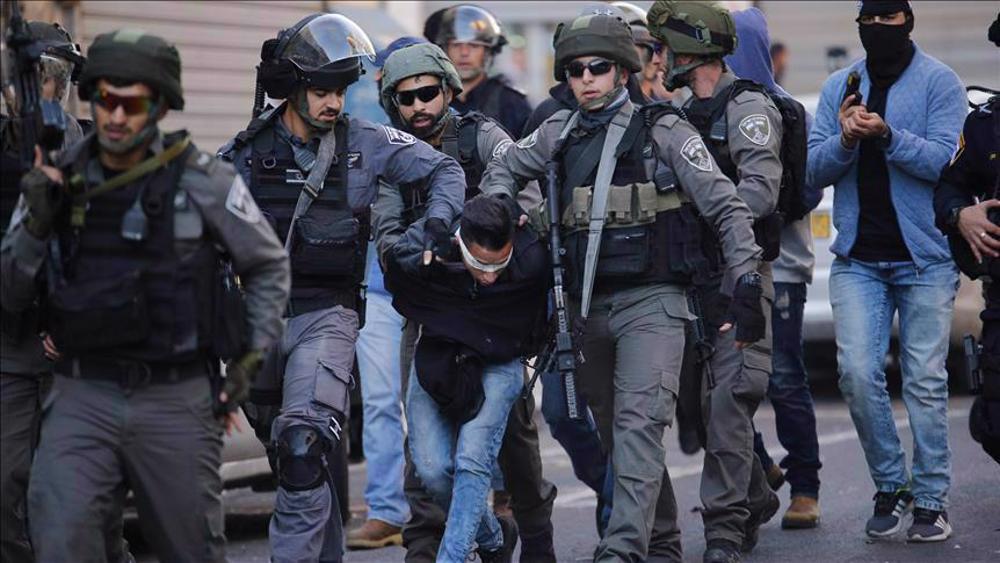
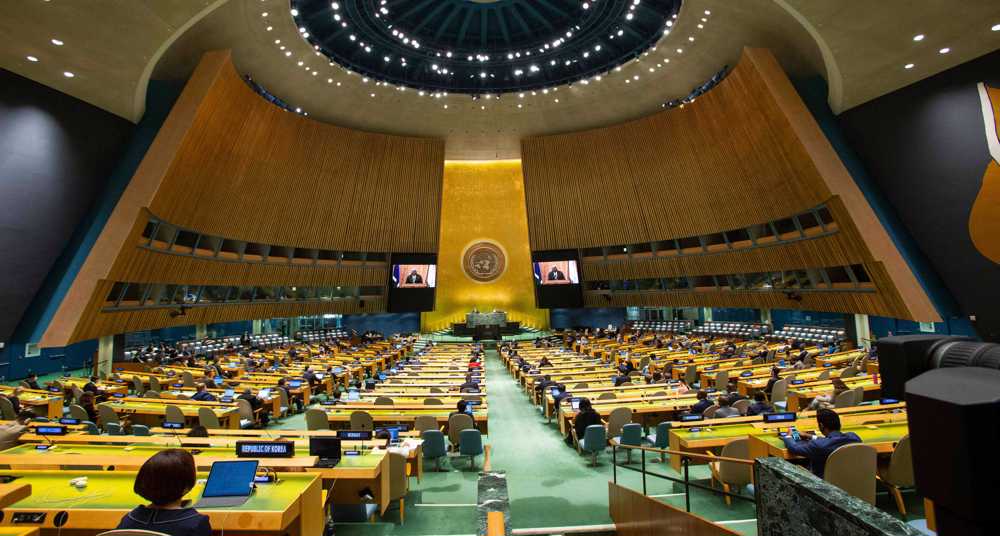

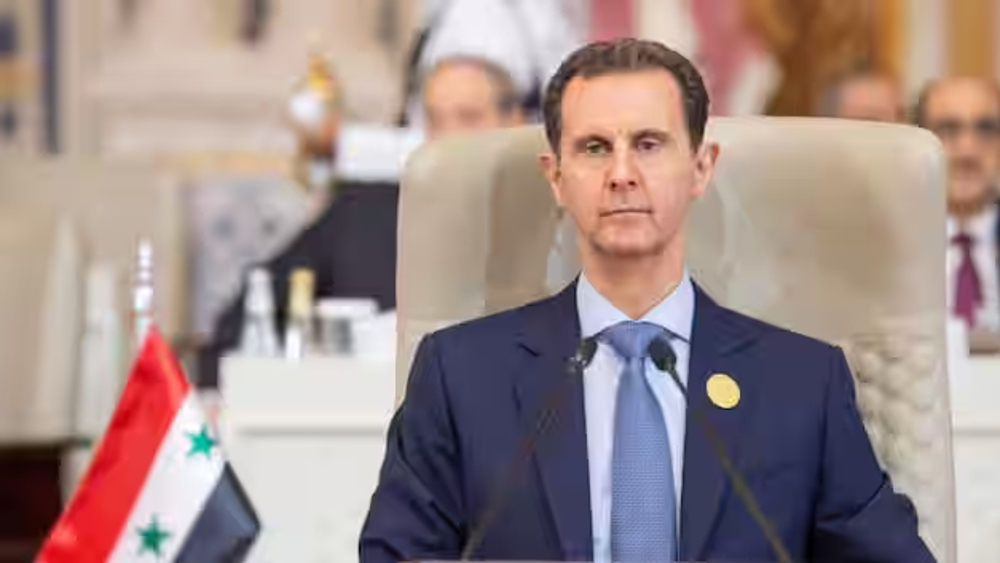




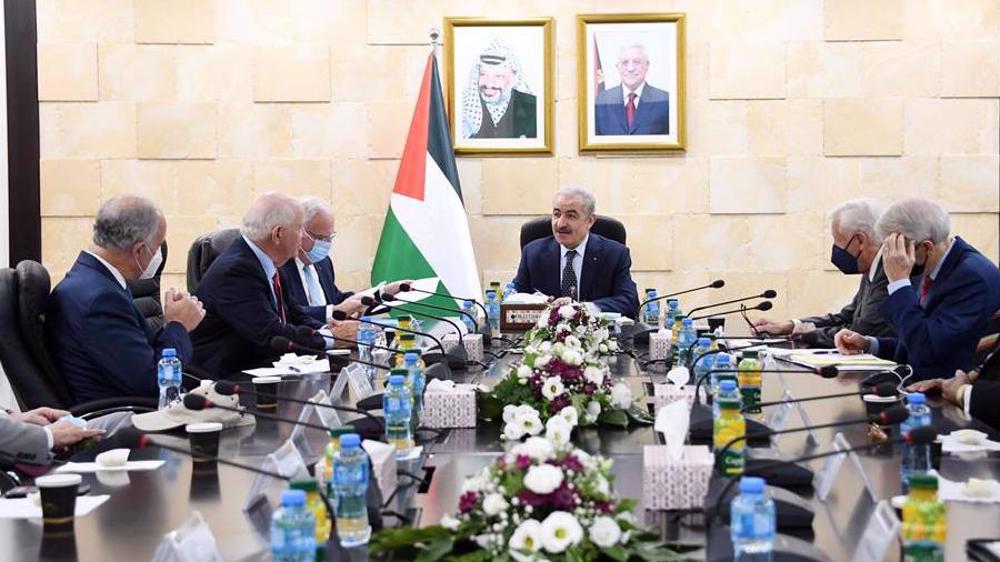
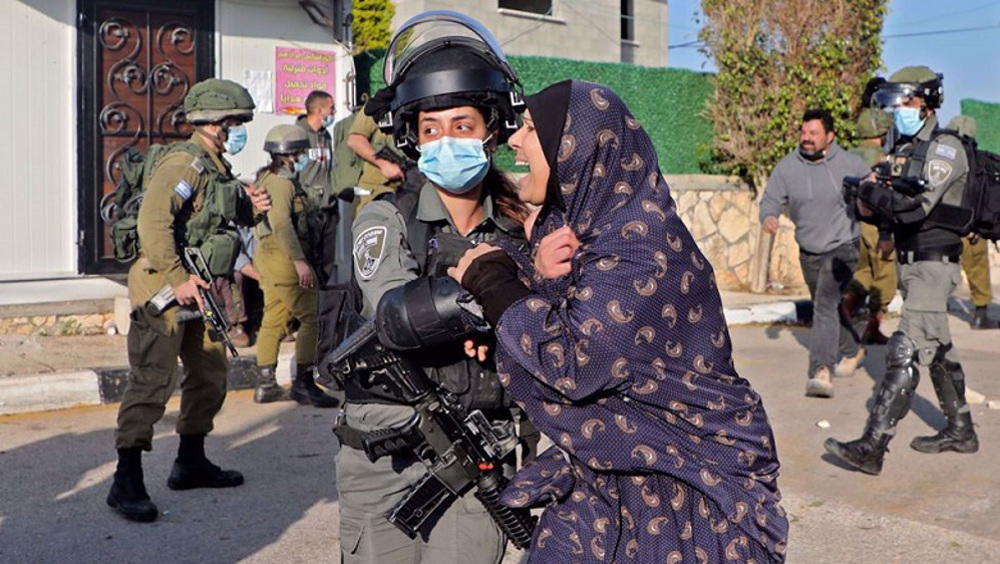
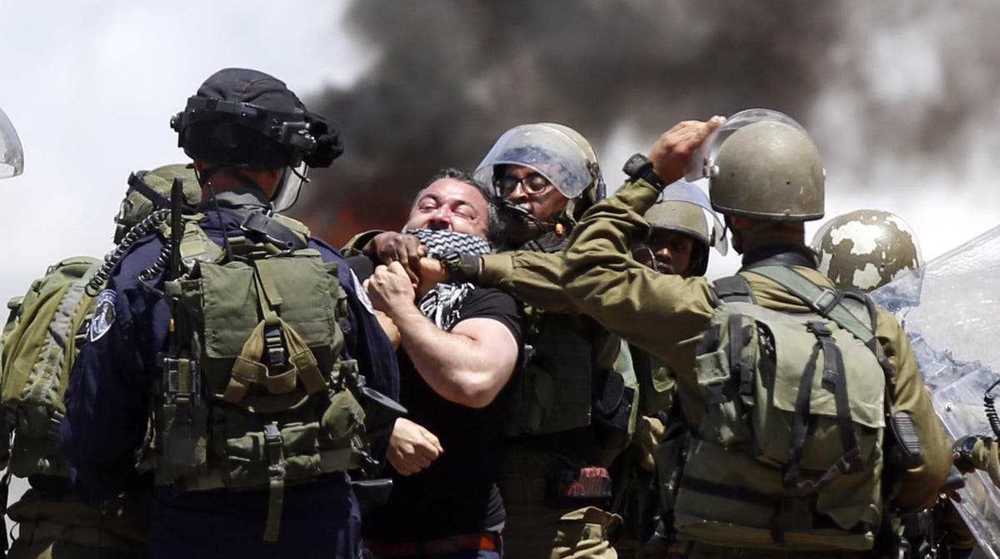
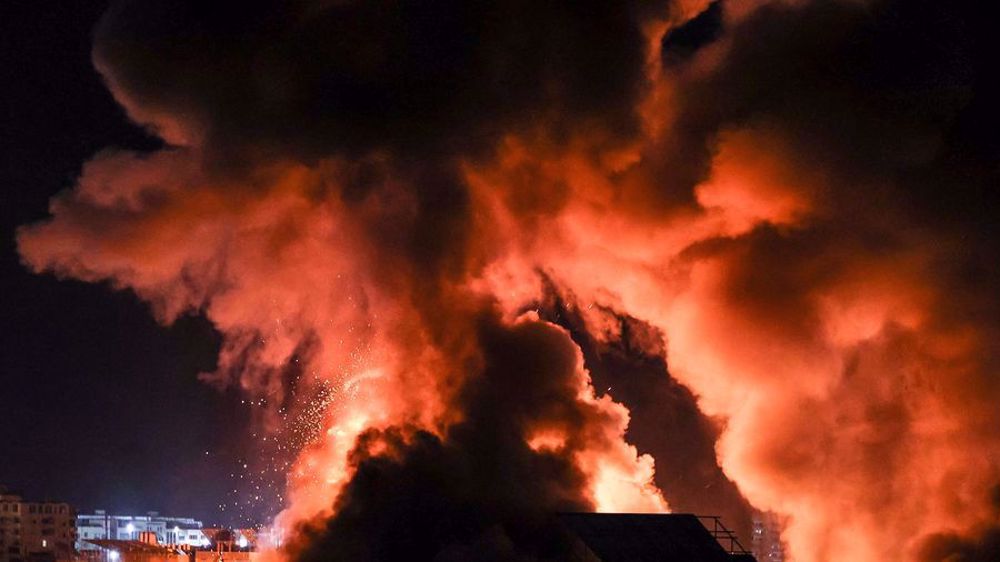
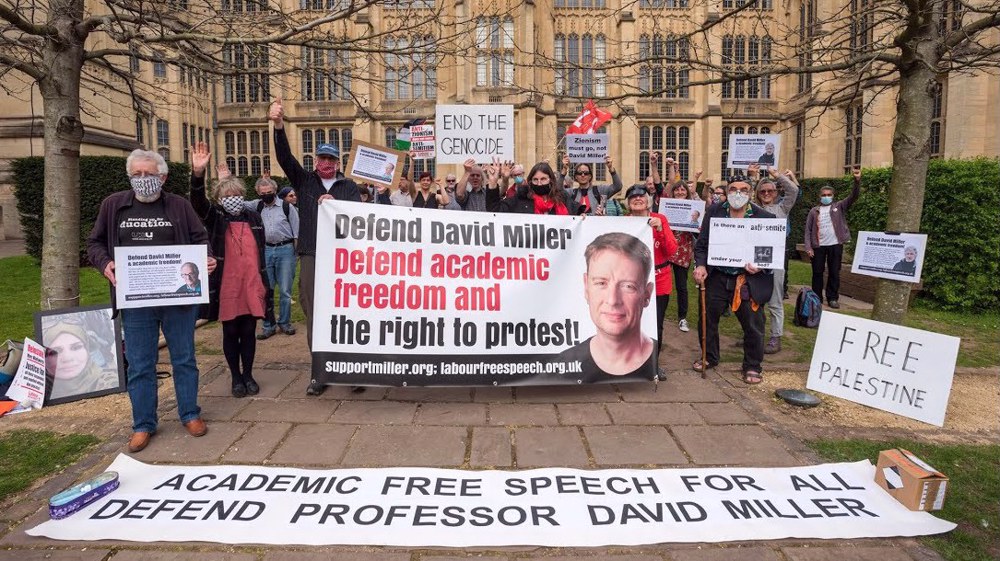
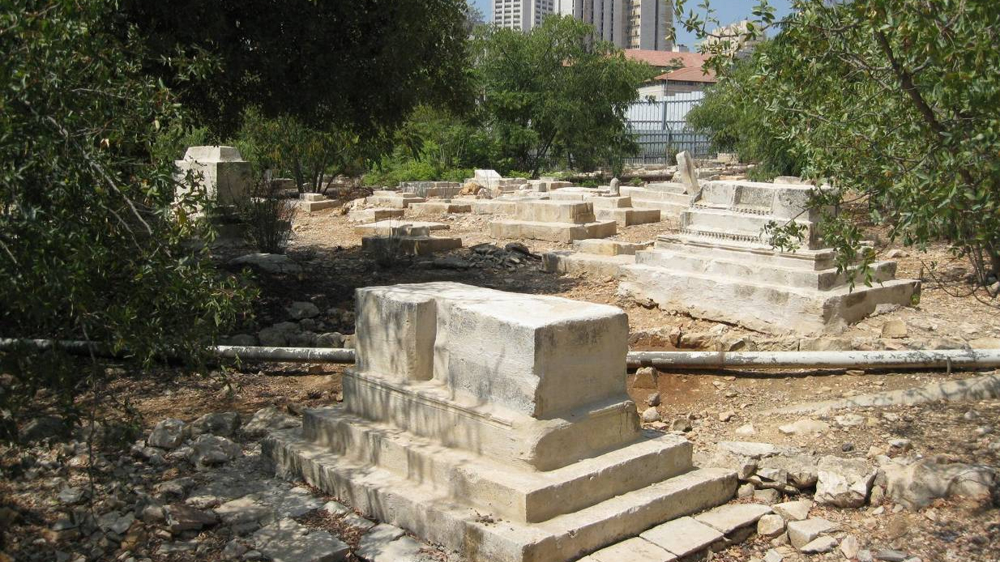
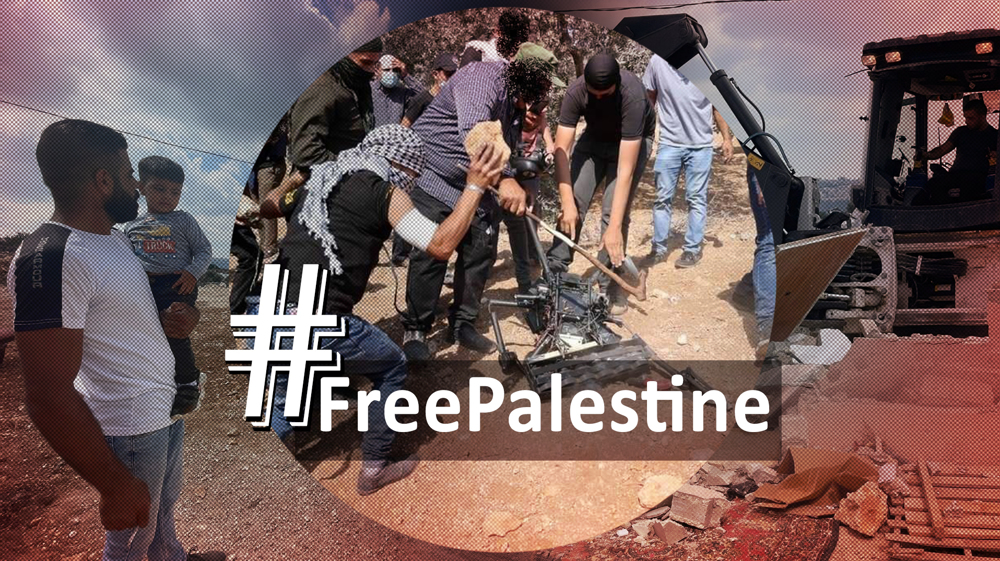
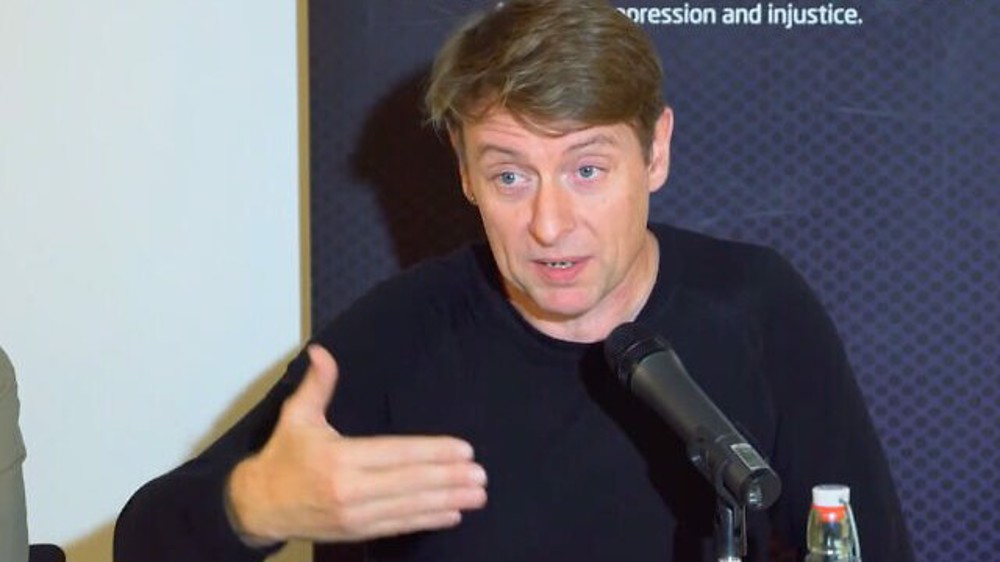
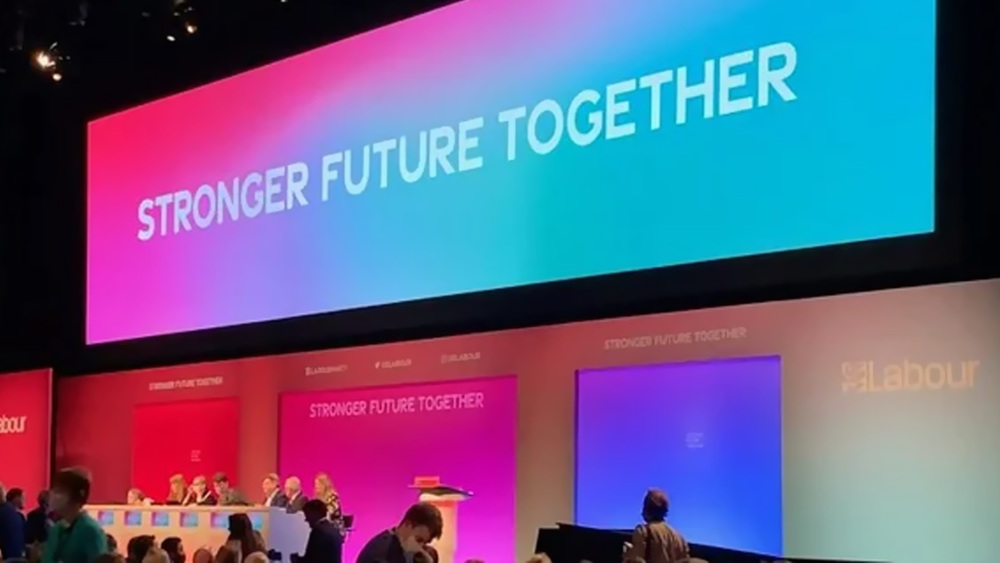

 This makes it easy to access the Press TV website
This makes it easy to access the Press TV website